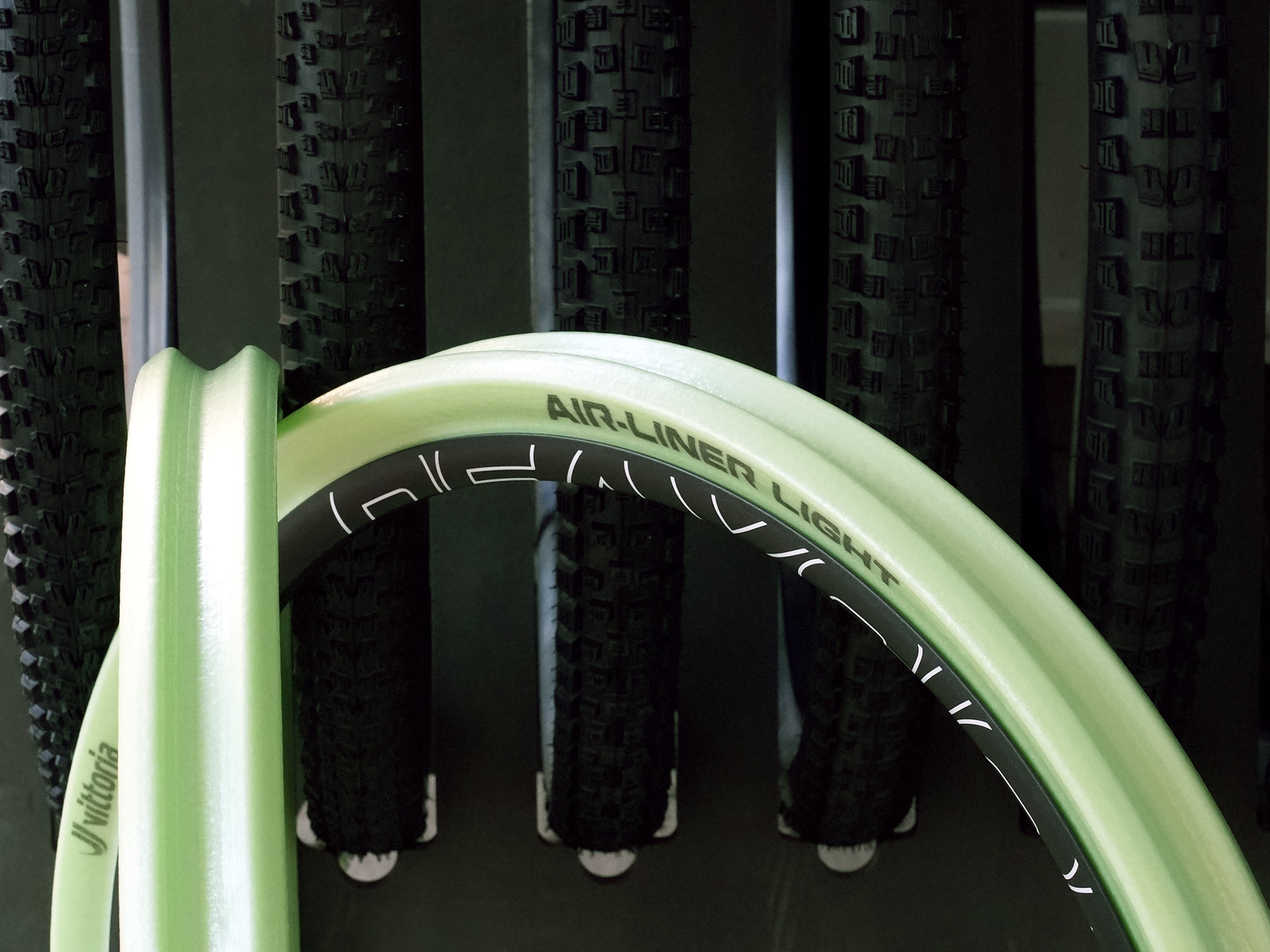At just 50g, the Vittoria Air-Liner Light is the lightest tire insert on the market, but that’s far from the most interesting feature. The design acts like a closed cell foam so it won’t absorb sealant, but it will expand when you puncture your tire, allowing it to fill the space and keep you riding.
It also supports the tire and acts like a micro suspension, enhancing ride quality and control, too. Aimed at the XC to Downcountry to Trail crowds, it’s an absolute game changer. Here’s how it works…
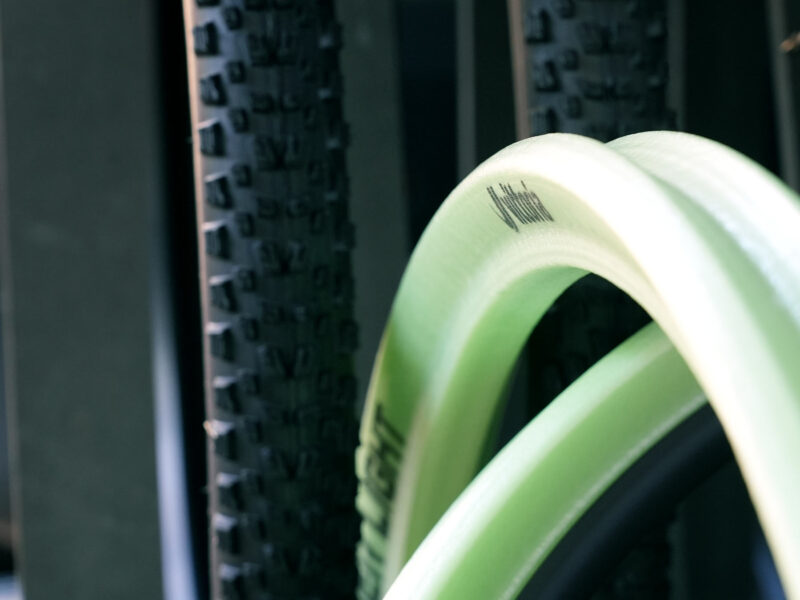
The material is technically an open-cell foam, but it acts like a closed-cell foam where it matters.
However, it doesn’t immediately absorb air like a true “open” cell foam would. The barrier and construction prevent immediate pressure equalization with the tire’s air pressure. Meaning, it acts like a “closed” cell foam in that it compresses when you inflate your tire, but… give it about 8-12 hours and it will equalize, expanding back to its original shape and filling up about half of your tire’s volume.
This doesn’t really change the tire pressure that you inflate it to, but they recommend setting up your tires and dialing in your tire pressure the day before an important ride. Day-of top-ups are fine, assuming your tire didn’t leak all its air out overnight.
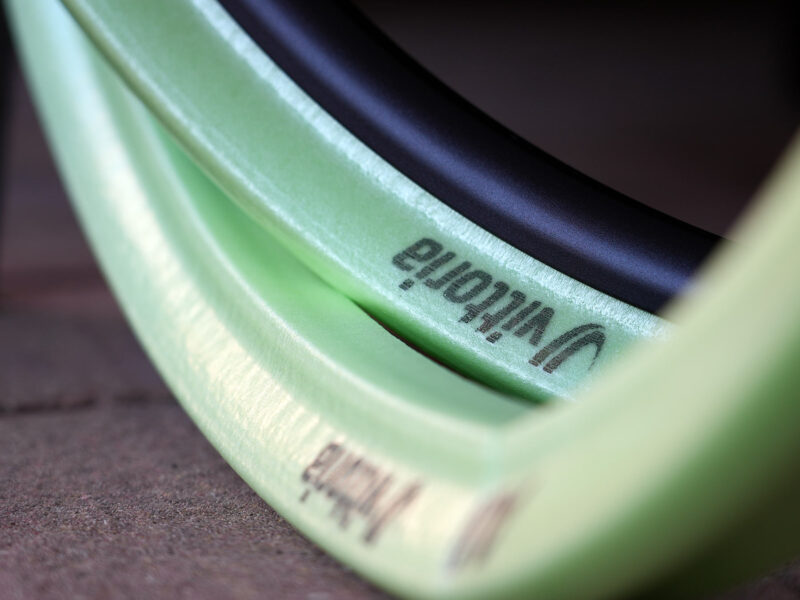
The real magic happens if you puncture the tire. Because it behaves like a closed cell foam, when your tire loses pressure, the air trapped inside the insert expands to fill that space. The insert’s volume grows by up to 20% to fill the tire, essentially giving you run-flat capabilities!
Basically, it goes from this:
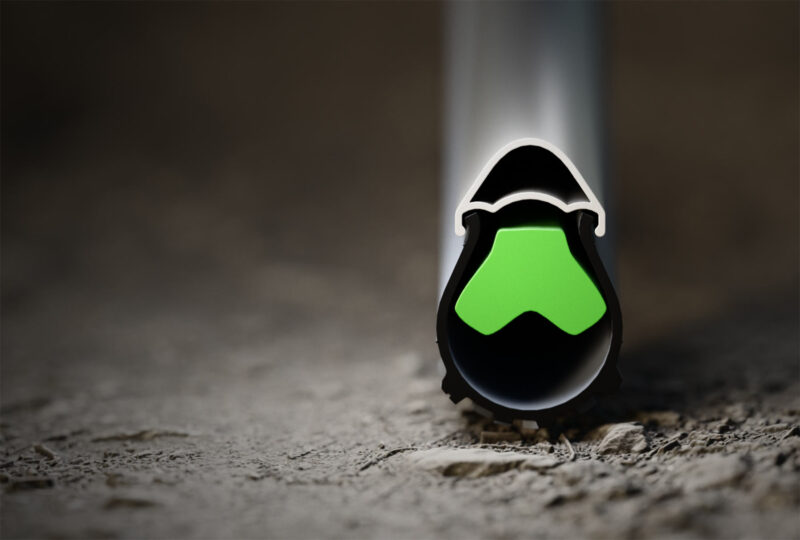
To this:
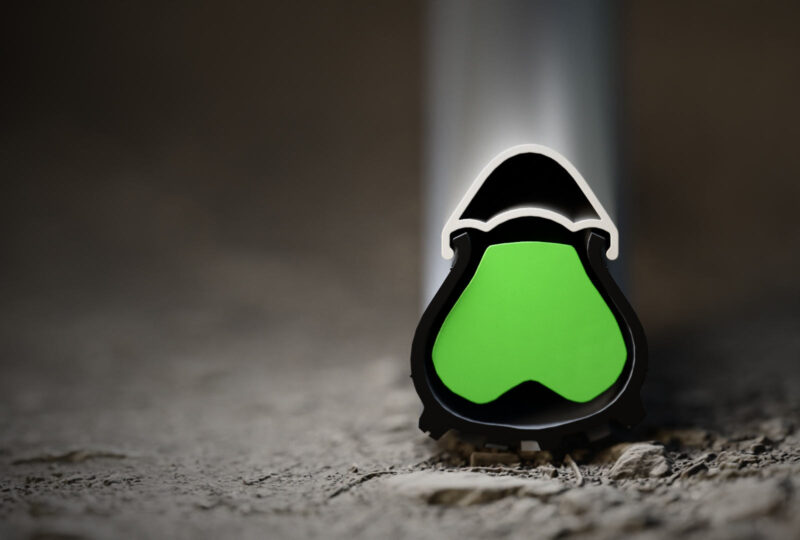
If you’re riding remotely or in the middle of a race, the Air-Liner Light could be the thing that gets you back home or across the finish line without having to stop for a repair.
They say BMC rider Juri Zalotti finished the last four laps of the 2022 XC short track at Let Gets, France, on a flat rear tire with this, and said the grip was actually better.
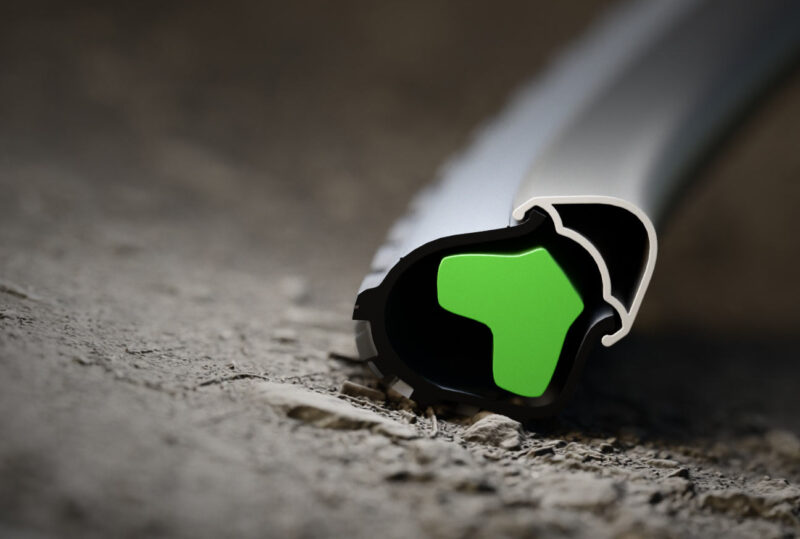
The insert also does the other things a mountain bike tire insert should do. It supports your tire during hard cornering…
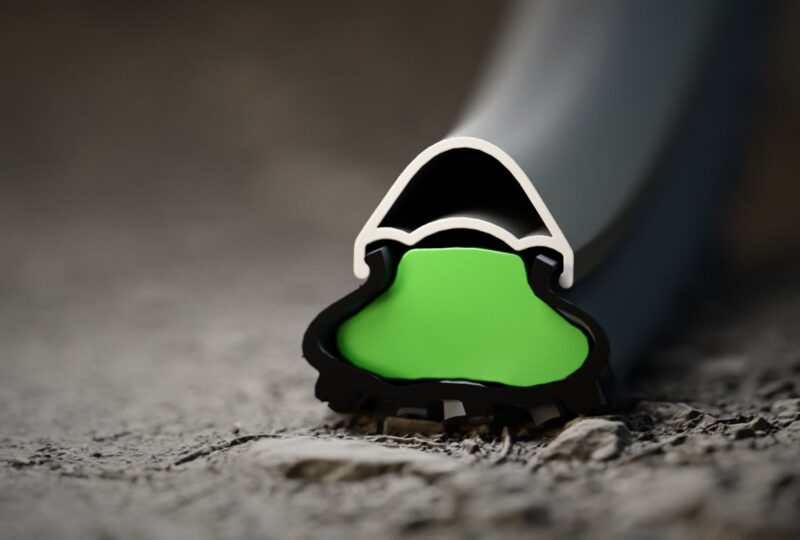
…and prevents pinch flats and rim damage on big impacts.
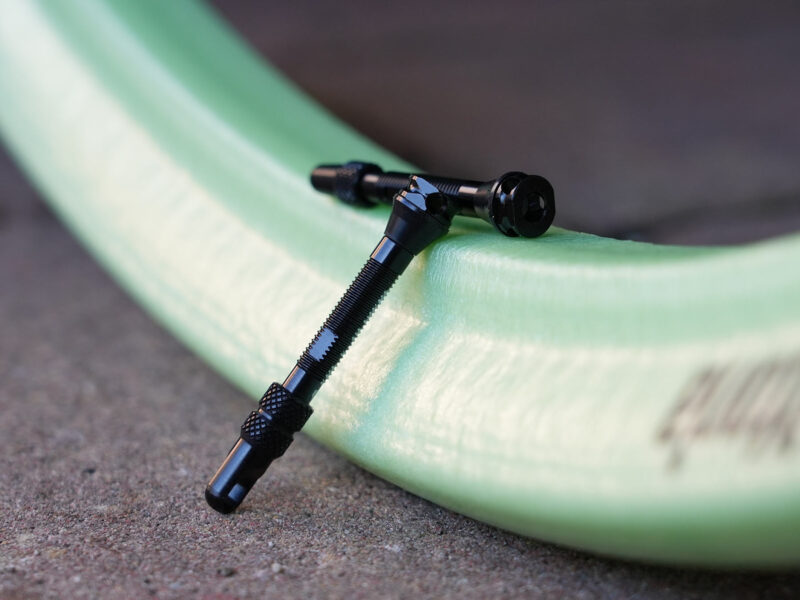
It has a tough waterproof coating that keeps it from absorbing moisture and sealant and protects it from scratches. Vittoria recommends latex- and ammonia-free sealants (and would prefer if you use their sealant). It’s not the end of the world if you don’t use those, but they may slightly shorten the insert’s lifespan.
Each insert runs $59.99 (per wheel) and fits rims with a 25-30mm internal channel. It’s recommended for tires ranging from 2.1″ to 2.5″ wide. Each insert comes with a 40mm Vittoria Green Multiway Tubeless valve stem that has ports at the base to allow air to get past the insert. Not so much to get past it when in-flating, but so air can get to it when de-flating. And, unfortunately, the valve stems are green, not the black ones shown here.
First Impressions of the Vittoria Air-Liner Light
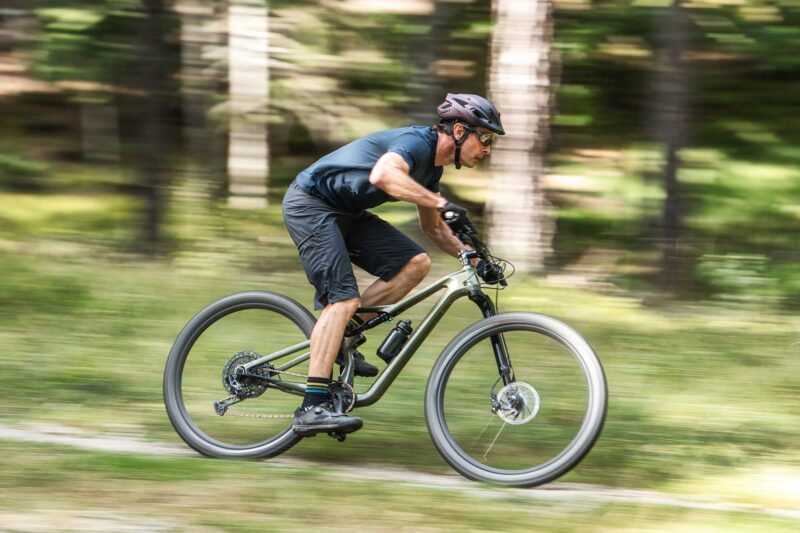
I rode these last fall at the Bike Connection Agency camp in Italy and they’re amazing. As in, A-MAZ-ING.
They put me on a Cannondale hardtail with 100mm Lefty fork with Agaro 29×2.35″ tires inflated to 17psi front and 17.5psi rear.
I’m 6’2″ and 195lbs dressed to ride. So I NEVER run tires with that little air pressure. On a hardtail, I’d probably be up around 23-25, depending on the conditions.
But at just 17-17.5psi, the bike rode incredibly well, with no squirm, no impacts, and no squishiness. And it wasn’t for a lack of trying:
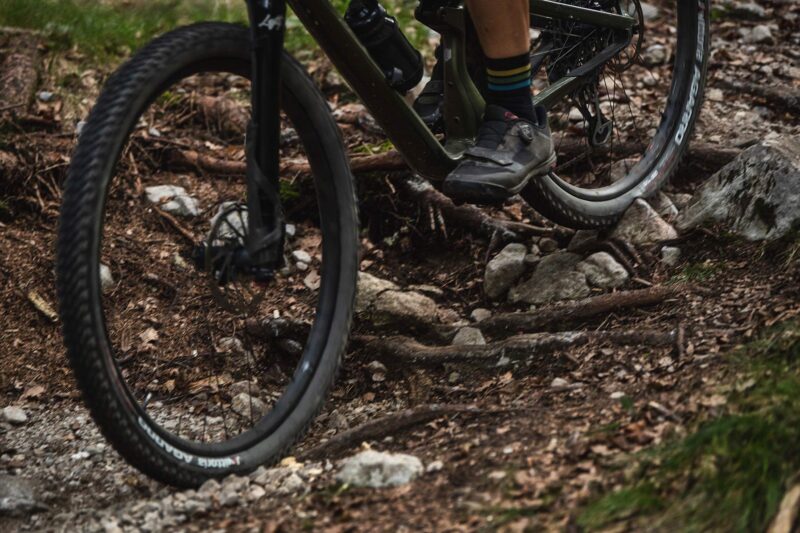
I went hunting for all the rocks and roots. The pointier and more abrupt and repetitive the better. Nothing could phase me.
Vittoria says it’s not just the protection and support that benefit the rider. They say inflating your tires with “only” air provides a very linear compression. Their original Air Liner (for more aggressive riding) is much firmer material that “ramps” up more quickly.
The Air-Liner Light has a more progressive compression, so it’s like a bit of suspension before your real suspension kicks in. Or, if you’re still on a hardtail, the lower tire pressure it allows combines with the progressive compression to provide something like a small amount of suspension.
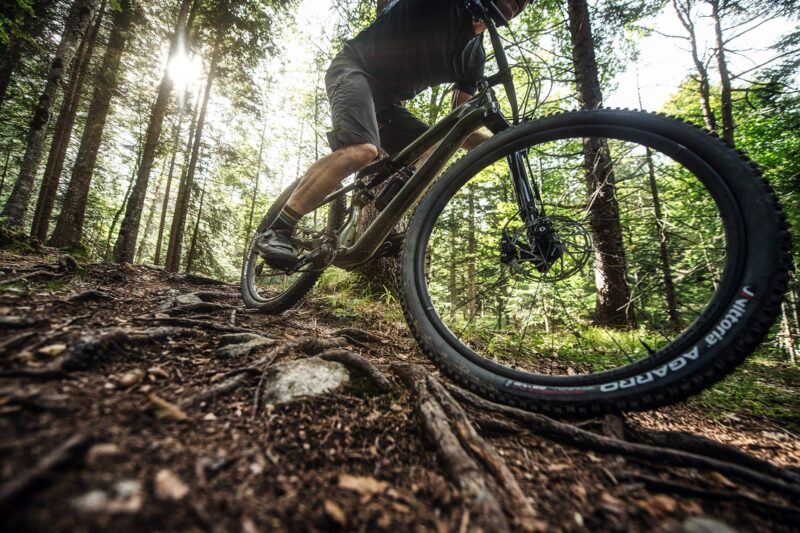
The other benefit is increased sidewall support, which keeps the tires’ shape intact during hard cornering despite the lower pressures. Combine that with improved impact protection for your rims and a reduced chance of pinch flats and it’s the perfect performance-boosting insurance for XC racers and aggressive trail riders.
I’ve just installed these on my own bike and am testing them for the long term, but my first impressions are so good that I’d recommend trying them right now.
